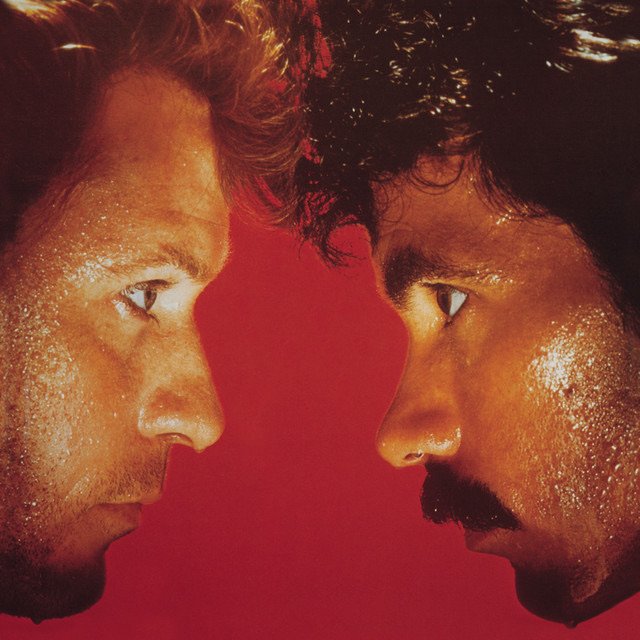Echoes of the Past: the folk tradition of cover songs and the moon & the mind’s rendition of ‘Maneater’
Photo Sourced from Spotify.com
Part Three: Redirection & feminine intuition
The folk tradition of covering and reinterpreting songs has long been a way for artists to reshape and redefine classic works. In this ongoing series, Echoes from the Past, we explore the ways in which songs transform through reinterpretation. Hall & Oates' Maneater is a prime example of a song that has endured, evolving across generations and through various artistic lenses.
One of the most striking aspects of Maneater is its arrangement. For a hit song, it has an unusual structure—the lyrics don’t come in until about 44 seconds into the track, and there’s an uncharacteristically long saxophone solo. Its commercial success is a testament to its catchiness and quality, as the song spent four weeks at #1 in America, making it the biggest U.S. hit of the '80s to feature a sax solo (Songfacts, n.d.).
While it’s easy to assume the song is about a woman, John Oates has clarified that it was actually written about New York City in the 1980s, describing greed, avarice, and excess. “But we have it in the setting of a girl because it's more relatable. It's something that people can understand,” Oates explained (Wikipedia, n.d.).
Despite being performed by a male duo, Maneater's influence is deeply rooted in feminine contributions. Even in its original form, Maneater underwent substantial transformation during its early development. Oates once described how the song began as a reggae track before it was reworked into its now-famous groove. He credited songwriter Sara Allen for one of its most memorable elements, explaining in an interview with American Songwriter:
“John had written a prototype of Maneater; he was banging it around with Edgar Winter. It was like a reggae song. I said, ‘Well, the chords are interesting, but I think we should change the groove.’ I changed it to that Motown kind of groove. So we did that, and I played it for Sara Allen and sang it for her…[Sings] ‘Oh here she comes / Watch out boy, she’ll chew you up / Oh here she comes / She’s a maneater… and a…’ I forget what the last line was. She said, ‘Drop that shit at the end and go, She’s a maneater, and stop!’ And I said, ‘No, you’re crazy, that’s messed up.’ Then I thought about it, and I realized she was right. And it made all the difference in the song” (Sharp, 2013).
Many of its notable cover versions have been recorded by female artists, so much so that it required some effort to find male interpretations for the curated playlist accompanying this article. Interestingly, John Oates himself revisited the song later in his career, which seems to play on the reggae influence of the original demo.
The Moon & The Mind’s cover of Maneater began as an attempt to blend the song with Valerie, reinforcing the theme of longing and desire in their concept-cover album. Ramon recalls the moment of inspiration: “I noticed the horns in Valerie seem to sing ‘Oh, oh here she comes,’ and it was a light bulb moment.” However, as production developed, the songs evolved into distinct entities, albeit still connected in subtle ways.
During the recording of Maneater, The Moon & The Mind found that unexpected factors played a role in shaping the final sound. When importing the demos into Logic Pro, something shifted—perhaps the key or some unintentional transposition—and Ayla adjusted her pitch intuitively. As the arrangement expanded, musicians like Noah Ritchie (guitar) and Jar Turner (bass) contributed their interpretations, with Ritchie adapting his guitar parts within minutes. Ramon reflected, “In lieu of the saxophone solo, I kept pushing Noah to layer more and more guitar parts, including the use of an eBow, accompanying the sort of ambient transition we had in mind to segue into Valerie. One of my favorite additions to the song, aside from the eBow/feedback transition, is the riff Noah wrote for the chorus. It gives the track this nice dissonance that's reminiscent of something out of a Pink Floyd tune.”
Their version of Maneater diverges from the polished, pop-driven aesthetic of Hall & Oates in favor of a grittier, more brooding atmosphere. “We kept the beat and bass true to the original,” Ramon explained, “but aimed for something a little more haunting.”
Honorable Mentions: Other Takes on “Maneater”
The curated playlist for this article highlights a range of covers and reinterpretations that showcase Maneater’s versatility:
Grace Mitchell – A downtempo, ambient synth-driven aesthetic that turns the track into something darker and more hypnotic.
Nelly Furtado – Not exactly a cover, but an entirely new song that reimagines Maneater as a club-ready, bass-heavy anthem, using the title and concept as inspiration.
Lower Dens – A stripped-down yet distinctly '80s-inspired take, capturing the nostalgic essence of the original while feeling fresh and reimagined.
Split Habit – A punk rock rendition that dials up the intensity, trading the original’s slick groove for raw, driving energy.
References
Sharp, K. (2013, February 8). Hall and Oates: Soul Survivors. American Songwriter.
https://americansongwriter.com/hall-and-oates-soul-survivors/
Songfacts. (n.d.). Maneater by Daryl Hall & John Oates.
https://www.songfacts.com/facts/daryl-hall-john-oates/maneater
Wikipedia. (n.d.). Maneater (Hall & Oates song).
https://en.wikipedia.org/wiki/Maneater_(Hall_%26_Oates_song)


